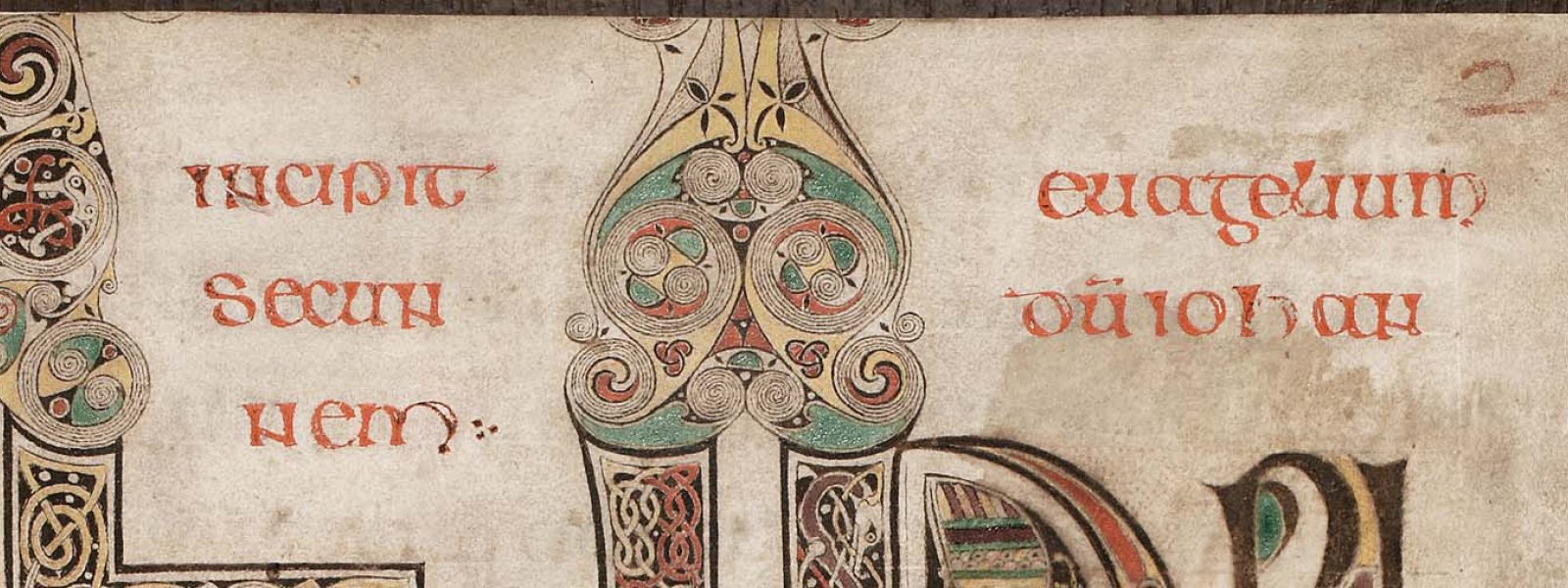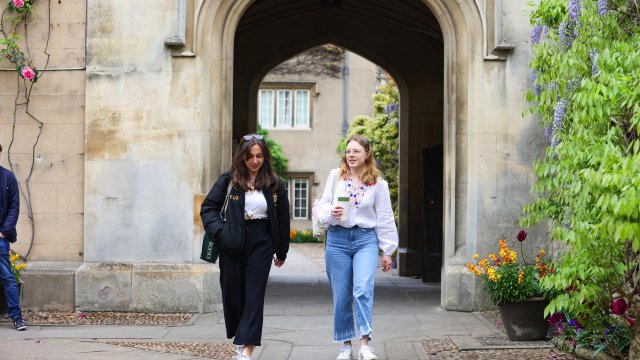Reading Anglo-Saxon, Norse, and Celtic at Sidney means studying a unique degree at the historic heart of Cambridge.
Important Note Concerning Interviews for 2024
Please note, all undergraduate admissions interviews at Sidney Sussex for the 2024-25 admissions round will be held online. Further details regarding interview platform will follow.
Anglo-Saxon, Norse, and Celtic is a department focused on exploring the history, material culture, languages, and literatures of the different peoples of Britain, Ireland, and Scandinavia, in the early medieval period, roughly from the 5th to the 11th centuries. It is a community of like-minded students and academics drawn from all the Colleges in Cambridge, with a long history of cutting-edge research. It provides a challenging but supportive intellectual environment in which to learn new skills or develop your own interests. Sidney has over the years been home to generations of ASNC undergraduates, as well as hosting doctoral students and postdoctoral researchers connected with the Department.
Undergraduate Study
- Discover more about ASNC at Sidney
We warmly welcome applicants for Anglo-Saxon, Norse, and Celtic (known as ASNC) at Sidney Sussex. Though it's quite a claim, there really is no other degree in the world like ASNC, which brings together study of the history, languages and literatures of the people of Britain, Ireland and Scandinavia in the early Middle Ages. So if you are fascinated by the story of the migrations that make up Britain's past or by the kind of early literature that inspired Tolkien's Lord of the Rings or by the way modern English, Welsh, Irish and the Scandinavian languages evolved, or by all those things at once, this course is for you. Only about thirty students per year across the whole University are admitted to study ASNC. Those numbers bring the benefit of small class sizes and one-to-one teaching from leading experts, but they also make for strong ties between students scattered across the different Colleges, with a clear shared identity as part of a close-knit community of undergraduates, graduates and senior members who treat the Department as a hub. Sidney has a well-stocked library for ASNC, complementing the rich resources of the Departmental and University Libraries, which are only a six-minute cycle from College.
Like most Arts and Humanities subjects, ASNC is not a vocational degree offering preparation for a specific career. Where ASNC differs, though, is in the remarkable range of transferable skills to be gained within the course, from learning to interrogate intriguing but obscure evidence – a rune-stone, a coin, a fragmentary manuscript – to picking up a new language quickly enough to start reading poems or historical sources that you can immediately interpret for yourself, from pursuing an independent research project to writing up the evidence in a professional way and presenting on it to your peers. That means ASNaCs go on to a great variety of careers after Cambridge - law, politics, teaching, archival and library posts, the heritage industry, publishing, forensics, as well as continuing in academic life - and those from Sidney are no exception.
The unique nature of the ASNC degree means that at interview we don't expect applicants to have any previous knowledge about the subjects covered by the course. Instead we look for strength in languages, literature, or history and an enthusiasm for, and curiosity about, the people of the past and the texts and objects they left behind.
- Written work
Two essays. We will send out more specific information about what is required after the UCAS deadline, but you will not need to write anything new specially for this.
- Admissions assessments
There will be no admissions assessment for this subject at Sidney Sussex College.
- Interviews
- All undergraduate admissions interviews at Sidney Sussex for the 2024-25 admissions round will be held online. Further details regarding interview platform will follow.
- Two interviews, both related to the subject. The first may involve a historical source to read 15 minutes prior to interview.
- Subject requirements
- Learn about our standard entry requirements for ASNC on the University website.
- At Sidney, popular subject combinations might include English, History, a modern language or Latin, but we do not have any particular requirements and are simply looking for evidence of academic ability in the humanities.
- It is helpful to have some idea of the areas of the Tripos that you might wish to study, and you should also do some exploratory reading about the topics that particularly interest you. The Anglo-Saxon, Norse and Celtic department has information on the papers that make up the ASNC Tripos, as well as some suggestions for introductory reading.
- Please note that offers are set on an individual basis using all of the information available to us in context of the entire field of applicants.
- Beyond the syllabus
Are you excited to learn more about the subject by delving beyond the school syllabus? Explore our Beyond the syllabus resource hub to discover interesting websites, podcasts, videos, and books related to the subject you love!
Typical intake
1 - 2
Typical A-level offer
A*AA
Typical IB offer
41-42 points overall, with 776 at Higher Level
Postgraduate Study
ASNC offers a nine-month MPhil centred around a dissertation (50% of the total mark) complemented by the chance to acquire core scholarly skills and to participate in a text-seminar offering the broadest view of the early medieval literature of Britain, Ireland and Scandinavia. The MPhil cohort is on average around 15 students, spread across all Colleges, who quickly integrate into ASNC's tight-knit community through sharing classes with undergraduates at the same time as attending seminars with doctoral students.
Around six students per year begin the ASNC doctoral programme, working on topics across the whole range covered by the Department.
At the University of Cambridge applications for postgraduate study are processed centrally by the Postgraduate Admissions Office. The application form and supporting documents are submitted electronically via their website and the online self-service system, though academic decisions on applications are made by the Faculty.
- Funding
There are many funding opportunities at Cambridge from a wide variety of sources including the Cambridge Trust, Gates Cambridge, Colleges, Departments, Research Councils and central University funds. You can use the Postgraduate Admissions' Cambridge Funding Search to find out which type of funding you might be eligible for, and how and when to apply. They also operate a Postgraduate Funding Competition to co-ordinate some of these funding opportunities and make the process easier for you as an applicant.
To find information about the funds available for postgraduate students at Sidney, visit our Studentships and funding page.
- Useful links
Course directory | Postgraduate Admissions | University of Cambridge
Funding | Postgraduate Admissions | University of Cambridge
How do I apply? | Postgraduate Admissions | University of Cambridge
International students | Postgraduate Admissions | University of Cambridge
Opportunities to work, travel, and study
The College is able to offer financial support for a number of student pursuits including:
- Professional and research internships
- Study awards
- Vacation travel
- Arts and music
- Sport
While it will not be possible to provide support in all cases, current students are strongly encouraged to apply if they have a project which would benefit from financial support.
Discover more on our Opportunities to work, travel, and study page.


